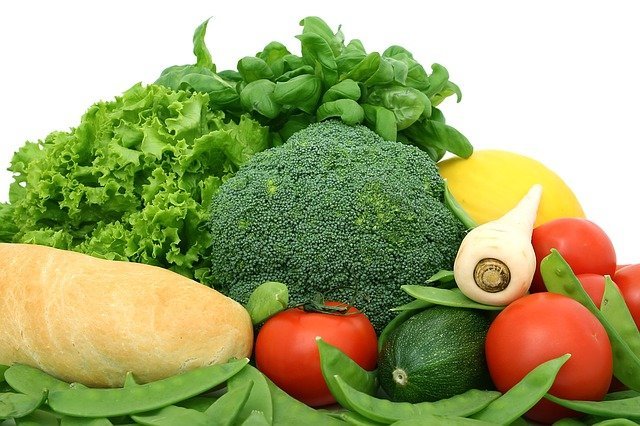How Good Is Kangaroo Jerky for Dogs?

Any fan of healthy dog treats knows that Kangaroo Jerky is one of the healthy dog treats available from WAG. Kangaroo Jerky is high in omega 3 (healthy fats) and one of the freshest meats and proteins available (organic if not sourced from non-organic farmer properties).
Kangaroo Jerky for dogs also contains essential nutrients that dogs require for a healthy and balanced lifestyle, such as iron, zinc, and vitamin B-12. But you might be wondering if your dog can eat Kangaroo Jerky. And, if so, what kind can you offer them?
Table of Contents
Vital Nutrients in Kangaroo Jerky
Iron
This is an important mineral in your dog’s diet because it helps many natural processes. Some of the crucial ones are blood production and the conversion of food into energy and other beneficial nutrients. Iron is required for the formation of three important components of blood: red blood cells, haemoglobin, and myoglobin.
These blood vessels are in charge of transporting oxygen and nutrients throughout your dog’s body in order to keep everything running smoothly. Iron is also used by a variety of enzymes. Enzymes are required by your dog’s body to convert food into energy and other valuable nutrients. Iron is required for enzymes to function, and enzymes keep your dog active, energised, and healthy.
Zinc
After iron, zinc is the second most abundant mineral in a dog’s body. Zinc deficiency can cause a variety of health problems, including digestive issues, dermatitis, overreacting immune system, liver failure, kidney failure, seizures, and heart failure. In the worst-case scenario, chronic zinc deficiency can lead to death.
Zinc deficiency is most prevalent in Malamutes and Huskies, but it also impacts Great Danes, German Shepherds, and Dobermans. Having said that, all dogs need zinc on a regular basis because they have no way of storing it in their bodies for later use. However, everything must be taken in moderation, as an excess of zinc can cause its own problems.
Vitamin B12
Vitamin B12, also known as Cobalamin, is an essential nutrient for your dog’s health in a variety of ways. Vitamin B12 is required for your dog’s body to absorb the iron mentioned earlier. As a result, dogs deficient in Vitamin B12 may develop anaemia, a condition characterised by a general lack of energy, loss of appetite, and weakness, among other symptoms.
Moreover, Vitamin B12 also helps your dog’s brain and spinal cord function properly and increases red blood cells, which are needed to keep energy levels up. This helps to maintain your dog’s appetite, allowing them to obtain all of its other essential nutrients through food.
Different Kinds of Kangaroo Jerky
This is entirely dependent on the type of Kangaroo Jerky you feed your dog. In this article, we will compare store-bought kangaroo jerky dog snacks to dog-specific jerky.
Kangaroo Jerky From the Store
If you have purchased kangaroo jerky for dogs from a store, there are a few things you should be aware of. Stop immediately if any flavours, such as onions, garlic, or spices, are added. Also, pay close attention to store-bought kangaroo jerky’s sodium (salt) content. While salt is tasty and acceptable in moderation for humans, a typical 15kg dog only requires about 100mg (0.1 grammes) of sodium per day.
To put this into perspective, a typical human jerky product has 500mg of sodium per serve. That’s five times the daily limit for dogs. Too much sodium can dehydrate your dog and cause other diseases or even sodium poisoning—something you should definitely avoid.
Kangaroo Jerky Intended for Dogs
Kangaroo Jerky made specifically for dogs must have little to no sodium. During the drying process, no salt is added to Kangaroo Jerky. Furthermore, there are no flavourings, preservatives, or other additives. When compared to commercially available processed dog treats, the unique slow-drying procedures lock in more nutrients for your pet’s healthy diet and well-being.
Why Does Your Dog Like Kangaroo Jerky?
Most dogs, even those who have never consumed kangaroo jerky dog snacks before, will be drawn to the smell and enjoy it. The meat, as with any free-range animal, has a more ‘gamey’ flavour and smell than farmed meat that most dogs and humans are familiar with, such as beef or lamb. It is significantly lower in fat, but the strong smell, which is amplified by the extraction of water, initially attracts a dog.
Any new food or meat source (due to the new protein) can take some time for a dog to adjust to, so it is always recommended to gradually introduce any meat, including kangaroo jerky, to reduce the risk of upset stomachs. However, veterinarians almost always use kangaroo meat in exclusion diets because most dogs are not allergic or oversensitive to it.
Why Do Large Dogs Need Kangaroo Jerky?
Because of the exceptional nutritional value (clean meat protein species suitable, not vegetable matter). If you give a large dog raw or cooked roo jerky, they will usually wolf it down, and while they will get nutrition, there will be no joy in chewing and shredding unless you feed them slabs of meat. A large, powerful dog will not be hindered for long by kangaroo jerky, but eating dried roo jerky takes longer than soft raw or cooked versions.
Why Do Small and Medium Dogs Really Like Kangaroo Jerky?
Large, strong dogs can chew and break down any bone size, but smaller and medium dogs frequently can’t, and it can pose a health risk if they don’t chew enough and try to ingest the pieces too quickly. Kangaroo jerky for dogs is, therefore, ideal for small and medium-sized dogs. Longer chewing and ripping meat-based dog treats are essential for these animals. Dogs, unlike their vegetarian cousins, do not have flat teeth for the long grinding of grains. As a result, they enjoy ripping meat with their sharp front teeth.
Meta Description
Kangaroo Jerky for dogs contains essential nutrients that dogs require for a healthy and balanced lifestyle, such as iron, zinc, and vitamin B-12. To learn more, check this article!












